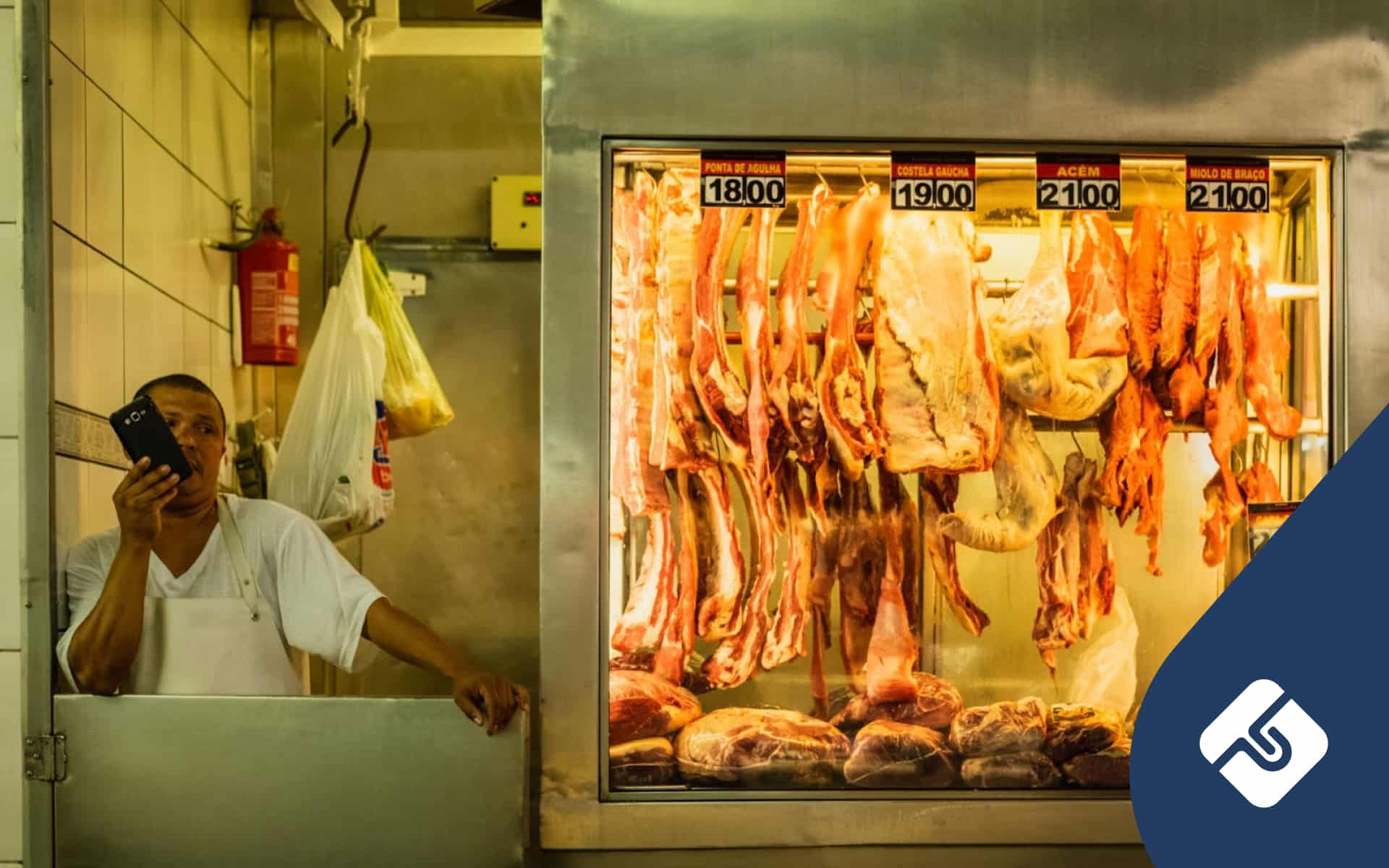Are you passionate about premium cuts of meat and want to work in the thriving Food & Beverages industry? Maybe you have a farm and you want to provide your local restaurants and food-enthusiasts with grass-fed and ethically raised beef?
Starting your own butcher business can help you in producing and selling premium quality meats to local consumers.
To start your very own butcher business there are a few things you will need to consider, ranging from your business structure to sourcing produce to attracting customers.
Before starting any new business you will need to make sure you meet all the administrative, financial and legal requirements.
This article will answer your questions on how to start a butcher shop. Keep reading to start your butcher business off on the right foot.
What is a Butcher Business?
A butcher in Australia deals with processing and selling meat. A butchery business or a butcher store specialises in the sale of meat, poultry and seafood. These business processes and package quality meats and seafood on-site. Common clients include individuals, restaurants and retailers.
Starting a Butcher Business: The Pre-Steps
Before you start your own butcher business, you will need to conduct some pre-steps and research to ensure long-term success.
Research
To have a successful butcher business, it is necessary to understand the industry. You can research the existing competitors, consumption and sale trends, etc. to determine what products you can sell. Your research can also help you in determining your target audience.
Establishing Your Niche
Good research can also highlight supply-demand gaps that your business can address. For instance, if there is a high demand for Wagyu beef in your area but not many retailers providing it, you can focus on selling Wagyu to address those demands.
Location
Your butcher business will require a retail space. If you want to set up a small-scale butcher business from your own home, you will still need space for storage and processing of the meats. You will need to either lease or buy the space for the retail store and/or processing unit.
Weighing out Pros and Cons
Running a butcher business comes with its own pros and cons. Before setting up your business, you should weigh out the pros and cons of running a butcher business. Some pros include a rewarding business, direct interactions with the local community and a wide variety of consumers. Cons could include intense work-hours, physical manpower required and risk with selling perishable products.
Equipment
To run a butcher business you are going to need produce. Firstly, you must organise a supplier who will provide the fresh produce which you will then sell to your customers. Secondly, you must consider the type of shop fixtures and equipment you will need to operate your business. This could include scales, fridges, cash registers and machinery.
All the equipment will be a considerable immediate expense. You should do your research to find the best deals to optimise the profitability of your business.
Create a Business Plan
Excellent planning will often lead to success. Using your research, you should develop a formal business plan to guide your butcher business. This might include your:
Business objectives and goals
Your business plan should set specific, measurable and achievable goals for your business. These objectives will help you track your progress and measure the impact of your business as your business grows.
Develop Your Business Name
You must register your business using a business name. Therefore, you should decide on a business name before you reach the registration phase. You can check the availability of the business name you have chosen to make sure it stands out!
Registering Your Business
All businesses in Australia need to be registered by applying for an Australian Business Number (ABN) using your business name. For further information, please see the Australian Business License and Information Service to learn about the laws you need to follow based on the specifics of your business.
Business Structure
You will also need to choose a business structure for your business. Do you want it to be a sole-proprietorship, a partnership or establish a company? Your determination will depend on the number of owners, number of employees, estimated revenue, etc.
The success of your business can also be dependent on the structure you choose for your business. Some business structures can provide risk-protection and tax-benefits whereas some might create higher tax-liability than other structures:
- Sole trader: This can be a low-cost option for an individual running the business. A sole-trader and their company are considered the same entity and hence they are responsible for the company’s debts and obligations.
- Partnership: A partnership is controlled by two or more people who also share the debts and obligations of the company.
- Company: A company has a complex structure and can legally sue and be sued. In other words, it is a legal entity in itself. Companies are incorporated under the Corporations Act 2001 (Cth) and are governed by the Australian Securities and Investments Commission (ASIC).
Here is a webinar on how to hire the right employees for your business.
Target market
Your business plan should discuss your target market based on your research. Your target market is composed of individuals from a certain demographic that your research predicts to be the most likely consumers of your products and services.
Competition
Your business plan should also conduct a competitor analysis to lay out your competitors and your strategy to generate demand for your products and services within such competition.
Marketing strategy
Once you open a butcher shop, you will need customers. To help you attract customers, you may want to implement a strategic marketing plan, to gain insight into your target market. It will also be beneficial in helping you understand what is the most effective marketing method to reach your target market. You may choose to start a social media page or put an advertisement in your local newspaper. Another simple and effective approach to reaching new customers is through word of mouth.
You can also effectively reach local audiences by setting up a pop-up store in your near-by farmer’s market, reaching out to potential customers through newsletters and emails and by forming local partnerships with concept shops and cafes to place your products in busy stores.
You can always seek assistance from a professional accountant or business lawyer to assist you with this, if you aren’t confident in developing a business plan yourself. It’s important to revisit and review your business plan regularly.
Butcher Business and the Law
Opening a butcher shop can be daunting, especially due to legal paperwork required. Some legal requirements that you might need to fulfil as your set up your butcher business are listed below:
- Employment contracts: It is likely that you will hire employees to work in your butcher shop–either to process or sell the packaged meat. You will need to draw up employment contracts, non-disclosure agreements and other employee documents for new hires.
- Workplace health and safety (WHS) regulations: Your business must comply with workplace health and safety standards.
- Food, Health and Safety Regulations: Depending on the region you are operating in, you will also need to meet food, health and safety regulations.
- Meat Licence: In order to slaughter, store and process meat, you will need to apply for a meat licence.
Licences and Permits
When starting any business you should always check if you require any licences or permits. In NSW any business that handles or processes meat, seafood and shellfish are required to hold a NSW Food Authority Licence.
As your butchery will be processing and selling meat you will be required to attain a licence. Every state and territory has different regulations so check with your local authority to ensure you have the correct licences.
Different regions of New South Wales, Tasmania, Victoria, South Australia, Queensland, Australian Capital Territory and Western Australia will have different requirements. You should check regional guidelines to ensure your butcher business complies with the regulations in your region.
Starting a butchery business can come with legal liabilities. You can speak to a lawyer to discuss legal requirements using Lawpath.
Frequently Asked Questions (FAQs)
- Is a butchery profitable?
The success of a butchery depends on its products and consistent quality. If a butchery can provide premium cuts of meat to its local consumers at a fair price, it can make profits. Australia was one of the world’s top meat-eating countries, in 2019.
This makes it a profitable country to run a butchery business in. Given Australia’s thriving dining scene, premium meats are also in demand by restaurants.
- How much money do I need to open a butcher shop?
A butcher shop can be an expensive venture. It requires expensive tools for processing and packaging of quality meat. You can raise funding through investors or take out a business loan for your butchery.
How Lawpath can help
Australia is one of the world’s biggest meat-eating countries. A butchery business can be profitable in this environment. If you’re still unsure about how to start a butchery, or wondering what licence is needed to open a butcher shop and need further legal advice, Lawpath can help you in hiring a lawyer.






